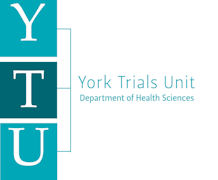AVURT – A pilot RCT assessing the effectiveness of aspirin for the treatment of venous leg ulcers
Aspirin for the treatment of venous leg ulcers is an inexpensive, widely used medication but its safety and efficacy was unknown. Our pilot study found there was no evidence that aspirin was efficacious in hastening the healing of chronic venous leg ulcers and an effectiveness trial would not be feasible.
Why did we do this research?
Venous leg ulcers can take many months to heal and 25% fail to heal. The main treatment for venous leg ulcers is compression therapy and few other therapies exist. Two previous trials indicated that low-dose aspirin may improve healing time, but these trials were insufficiently robust.
What did we do?
We carried out a multi-centred, pilot, phase II, randomised, double blind, parallel-group, placebo-controlled, efficacy trial (RCT) to determine: if aspirin improves venous leg ulcer healing time; the safety of aspirin in this population; treatment compliance; and the feasibility of recruitment to a full trial. Participants were randomly assigned to receive 300 mg of daily aspirin or placebo in addition to standard care, which consisted of multi component compression therapy aiming to deliver 40 mmHg at the ankle where possible. The primary outcome was time to ulcer healing.
Who was involved?
We recruited patients from secondary care who were aged 18 years or above, had a chronic venous leg ulcers and not regularly taking aspirin.
What did we find?
We were unable to recruit to target despite exploring options: a short time-frame to recruit and failure to meet the eligibility criteria were the main barriers to recruitment. There was no evidence that aspirin was effective in expediting the healing of chronic venous leg ulcer. However, the analysis was underpowered due to the low number of participants recruited. The study design would require substantial amendment in order to progress to a full effectiveness trial.
Publications
- Helen T, Liz C, Laura C, et.al. Aspirin versus placebo for the treatment of venous leg ulcers-a phase II, pilot, randomised trial (AVURT). Trials. 2019 Jul 26;20(1):459. https://doi.org/10.1186/s13063-019-3480-7.
- Tilbrook H, Clark L, Cook L, et al. AVURT: aspirin versus placebo for the treatment of venous leg ulcers a Phase II pilot randomised controlled trial. Health Technol Assess 2018;22(55) https://www.journalslibrary.nihr.ac.uk/hta/hta22550/#/abstract
- Tilbrook H, Forsythe RO, Rolfe D, et al. Aspirin for Venous Ulcers: Randomised Trial (AVURT): study protocol for a randomised controlled trial. Trials 16, 513 (2015). https://doi.org/10.1186/s13063-015-1039-9
Team
- Helen Tilbrook
- Laura Clark
- Martin Bland
- Hannah Buckley
- Liz Cook
- Rhian Gabe
- Catriona McDaid
- David Torgerson
Department of Health Sciences, University of York, York, UK
- Rachael O. Forsythe
- Laurie Williams
- Robert J. Hinchliffe
St George’s Vascular Institute, St George’s Healthcare NHS Trust, London, UK
- Debbie Rolfe
- Robert J. Hinchliffe
St George’s University of London, London, UK
- Ian Chetter
Hull York Medical School, University of Hull, Kingston upon Hull, UK
- Jo Dumville
School of Nursing, Midwifery and Social Work, University of Manchester, Manchester, UK
- Keith Harding
Wound Healing Research Unit, Cardiff University, Cardiff, UK
- Alison Layton
Harrogate and District NHS Foundation Trust, London, UK
- Ellie Lindsay
The Lindsay Leg Club Foundation, London, UK
- Christine Moffatt
School of Health Sciences, University of Nottingham, Nottingham, UK
- Ceri Phillips
Swansea Centre for Health Economics, Swansea University, Swansea, UK
- Gerard Stansby
School of Surgical and Reproductive Sciences, Newcastle University, Newcastle upon Tyne, UK
- Peter Vowden
University of Bradford, Bradford, UK
Funding
The research was commissioned by NIHR HTA programme (Award ID: 13/87/08) and a grant of £293,432.35 awarded. The project was started in January 2015 and completed in November 2016.
Study Registration
The study is registered on a public database with clinicaltrials.gov (NCT02333123; registered on 5 November 2014).


